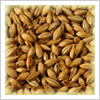Your cart
Novidades da empresa

 Tanzania: Barley farmers to benefit from opening of a mega malting plant in Moshi
Tanzania: Barley farmers to benefit from opening of a mega malting plant in Moshi
Barley farmers in Tanzania are set to reap significant benefits from the opening of a mega 40.38 million US dollars (about 96bn/-) Kilimanjaro Malting Plant in Moshi, Daily News reported on May 28.
The new facility, constructed by Tanzania Breweries Limited (TBL), is expected to be operational soon and is poised to greatly enhance barley production and processing in the country.
“This is yet another significant effort by both local and foreign investors to support the government’s initiatives to uplift farmers by providing a reliable market for their produce,” said TBL Managing Director, Ms Michelle Kilpin.
She described the malting plant as a transformative opportunity for Tanzania’s barley farmers, offering improved market access, increased production capacity and holistic support aimed at promoting sustainable agriculture.
According to Ms Kilpin, the plant will significantly boost local barley demand, with plans to increase annual purchases from the current 5,000 to 15,000 tonnes and ultimately to 32,000 tonnes over the next five years. This expansion is expected to provide a stable and growing market for farmers.
TBL currently supports more than 4,500 local farmers by sourcing key raw materials, including barley, maize and sorghum, from regions such as Arusha, Manyara, Dodoma and West Kilimanjaro.
“Our support goes beyond procurement,” said Ms Kilpin.
“We offer training in sustainable farming techniques, provide quality seeds and fertilisers and guarantee secure off-take contracts. This integrated approach strengthens rural economies while ensuring a resilient supply chain.” She added that farmers are also trained under TBL’s Smart Agriculture Initiative, which focuses on modern agricultural practices and digital connectivity to provide real-time information, aiming to boost productivity and improve livelihoods.
The new malting plant is expected to enhance processing capacity, improve efficiency and reduce operational costs—benefits that will positively impact both producers and consumers. Furthermore, the plant will expand contract farming opportunities.
Approximately 17,500 out-growers from Kilimanjaro, Manyara, Mbeya and Rukwa will be engaged under formal agreements, ensuring consistent income and encouraging sustainable practices.
TBL’s Head of Tax, Mr Jovin Bachwa, underscored the company’s ongoing commitment to national development. He noted that TBL has paid over 5.5tri/- in taxes over the past ten years, underscoring its role as a key contributor to the country’s economy.
“Our tax contributions help support national initiatives, including infrastructure development, social services and economic growth programmes,” he said.
Mr Bachwa also addressed the financial burden posed by the Electronic Tax Stamps (ETS) system, calling for further reductions in associated costs.
“While we appreciate the government’s move last year to reduce ETS charges from 28 per cent to 24 per cent, we propose a further reduction to 17 per cent to ease production costs,” he said.
Between 2018 and 2022, TBL paid over 75.8bn/- for the ETS system, equivalent to about 38 per cent of the excise duty it remitted. Mr Bachwa argued that these funds could, otherwise, have been reinvested in business expansion and development.
Voltar





